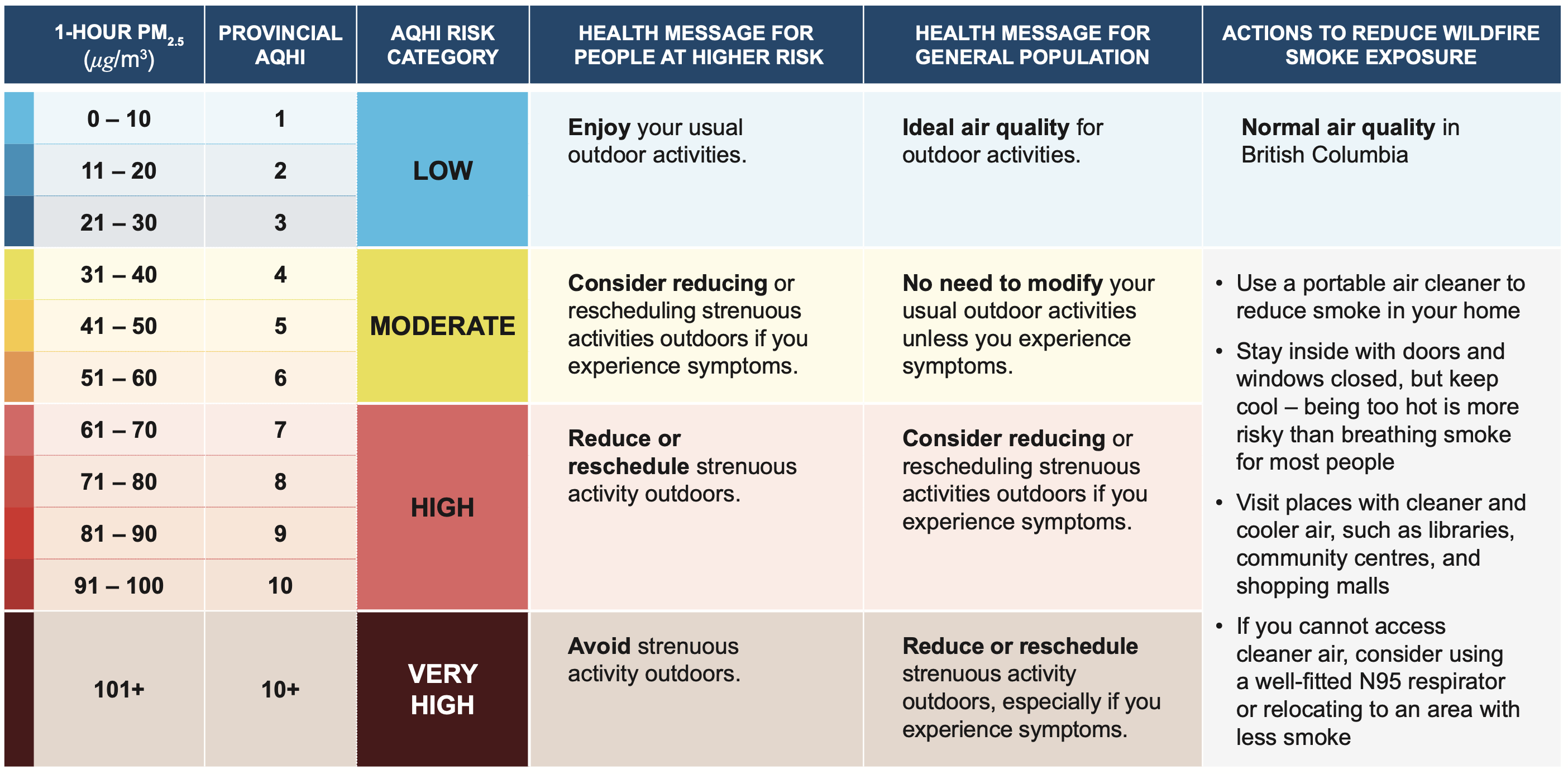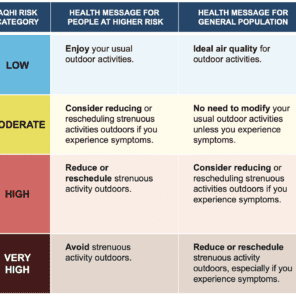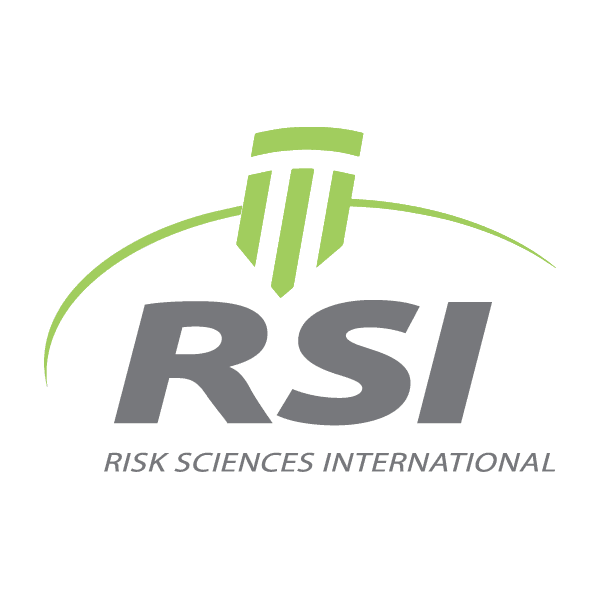Case Study Client: Environment and Climate Change Canada, Health Canada
Listing of the client in no way affirms the client's support, sponsorship, or validation in any form of Risk Sciences International or the RSI staff member(s) who conducted this project during their stay with RSI or prior to joining the company. This case study is displayed for informative purposes only to demonstrate the capacity of RSI staff members. This case study reveals no proprietary information or information deemed sensitive.
Mandate
Environment and Climate Change Canada, with Health Canada, wanted to understand perceptions of the health risks from smoke from wildfires and from residential burning (winter heating using wood stoves, and fireplaces), and public health communication approaches and messages used in these contexts. This information would support revisions of the health messages used in the Air Quality Health Index (AQHI).
The AQHI expresses the health risk associated with three common urban air pollutants, and is calculated at monitoring stations in communities across Canada to inform the public of the risk level of current local air quality conditions. However, it is not well suited to characterizing the health risk from smoke, which is measured by levels of fine particulates alone; in addition, the health messages included in AQHI reports do not address the risks and protective measures that are relevant to smoke pollution. The purpose of the project was to develop improved messages to enhance the utility of the AQHI as a public health communication tool during smoke pollutions events and situations.
Work
The project involved a review of academic and grey literature, media reports and social media on perceptions of the health risks associated with smoke from wildfires and residential burning, and on communications approaches and messages that were used in public health responses to these smoke events. Interviews were also conducted with key informants within relevant government departments, and with air quality advocates who were involved in public health aspects of smoke.
An analysis was conducted of the risk concerns within communities affected by the two types of smoke pollution, as well as the types of public health messages that the public receives and uses in these situations. The effectiveness of the different types of messages for conveying relevant health risk information to affected audiences was evaluated, and challenges identified.

Source: click here
The AQHI-Plus designed by the British Columbia Centres for Disease Control to calibrate an AQHI level driven by the concentrations of fine particulates during a smoke pollution event. This retains the standard AQHI messages and adds an additional column of messages specific to smoke exposures.
This is an important component of the improved AQHI messages that RSI developed.
Outcomes
The findings of the literature reviews and interviews, and the analysis of the two different risk perception and communication contexts, were presented in a report to the client. The report also included recommendations for improved communication messages for public health messages for smoke pollution due to wildfires and to residential burning.
In a subsequent step, risk communication principles were applied in the development of improved AQHI messages for each of the two smoke pollution risk contexts. These messages consisted of revised AQHI message content and display for each context, as well as additional information to support the understanding of the information and conduct of the behavioural measures suggested.
Posted in Case Study
More RSI Case Studies
RSI presents a very small selection of case studies to highlight some of its key work.
The review involved an analysis of the events and processes that led to public criticism of Health Canada’s handling of the drug company’s recall of a contraceptive drug due to…
Read MoreRSI was tasked with providing scientific advice and content for a nuclear power reactor licensing process in an OECD country. The nuclear safety commission in question regulates and licenses all…
Read More- « Previous
- 1
- 2




